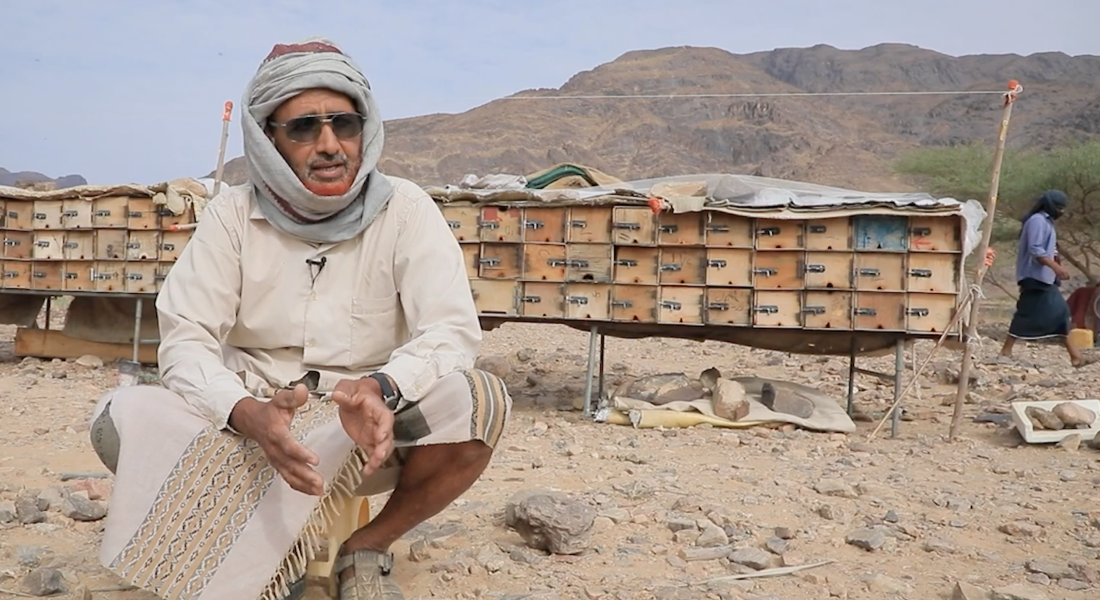Everywhere you go in Yemen, you will find honey.
Whether it is with your masoob breakfast (a delicious dish of banana, bread, dates, spices and of course Yemeni honey), in your lunchtime honeycomb bread desert of bint al sahn or areeka, for a late evening sweet treat, Yemen honey is undeniably interlinked to Yemeni life.
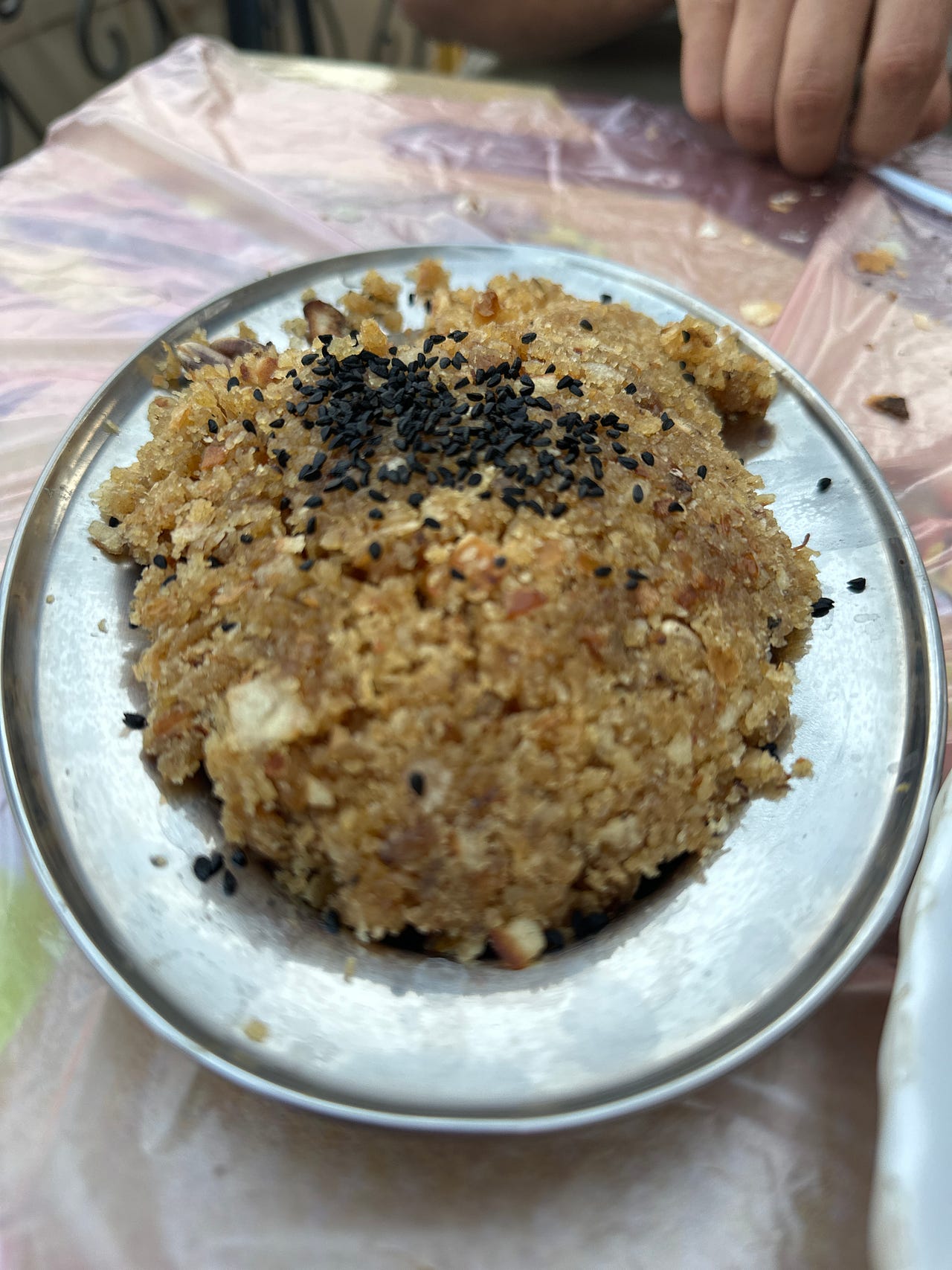
As old as the Yemeni civilisation itself, beekeeping is a huge part of the country’s heritage. Poems, books, and songs celebrate this liquid gold, which has been vital to local economic development.
According to the United Nations Development Fund, the country’s 1.2 million native bee colonies produce more than 1,500 tons of honey, providing a livelihood to around 100,000 beekeepers.

Landmines threatening bee colonies
The presence of indiscriminately planted landmines, coupled with the enormous challenged posed by climate change, has drastically hampered the resilience of mostly nomadic Yemeni beekeepers in the war-torn country.
According to the Sana’a Center for Strategic Studies (SCSS), “unlike most honey producers worldwide, who predominantly rely on static apiaries, Yemeni beekeepers move their bee colonies between the mountains, valleys, and plains in pursuit of suitable pasture.
“Like shepherds, beekeepers are particularly vulnerable to injury or death from landmines that have been widely planted since the war.”
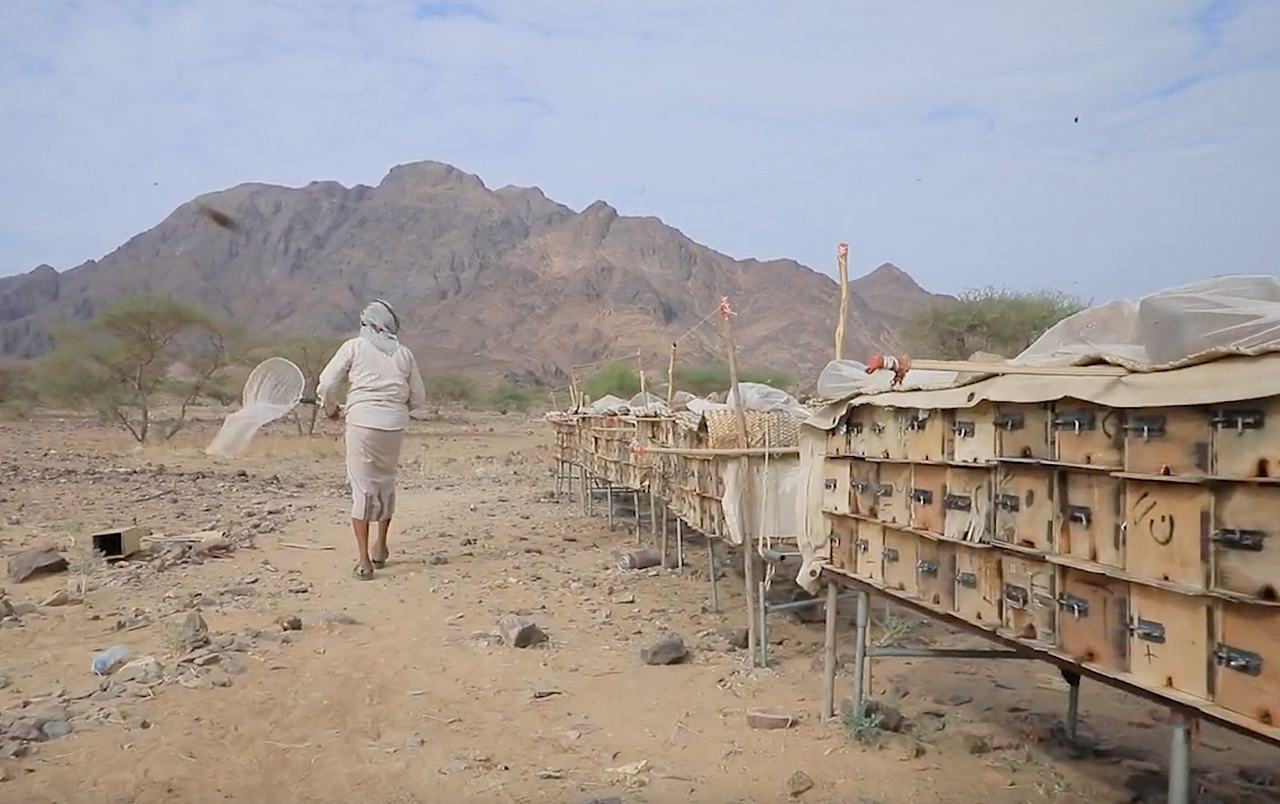
Ahmed Saleh Al-Musabi, a beekeeper from the Mabalqa district in Bayhan region of Shabwah Governorate (pictured in front of his hives, top), described the impact landmines have had on him and his apiarist peers in the region, whose beehives rely on them to help thrive and survive.
“We used to move around the beehives in many places, but in some places we were prevented from being there; we were not been able to visit this area in particular for more than a year,” Al-Musabi told Project Masam, referring to a zone used for honey farms.
“This area was a major obstacle for us, as we could not enter such dangerous areas.”
In Mabalqa district, the apiarist claimed, a number of civilians fell victims to the explosive devices.
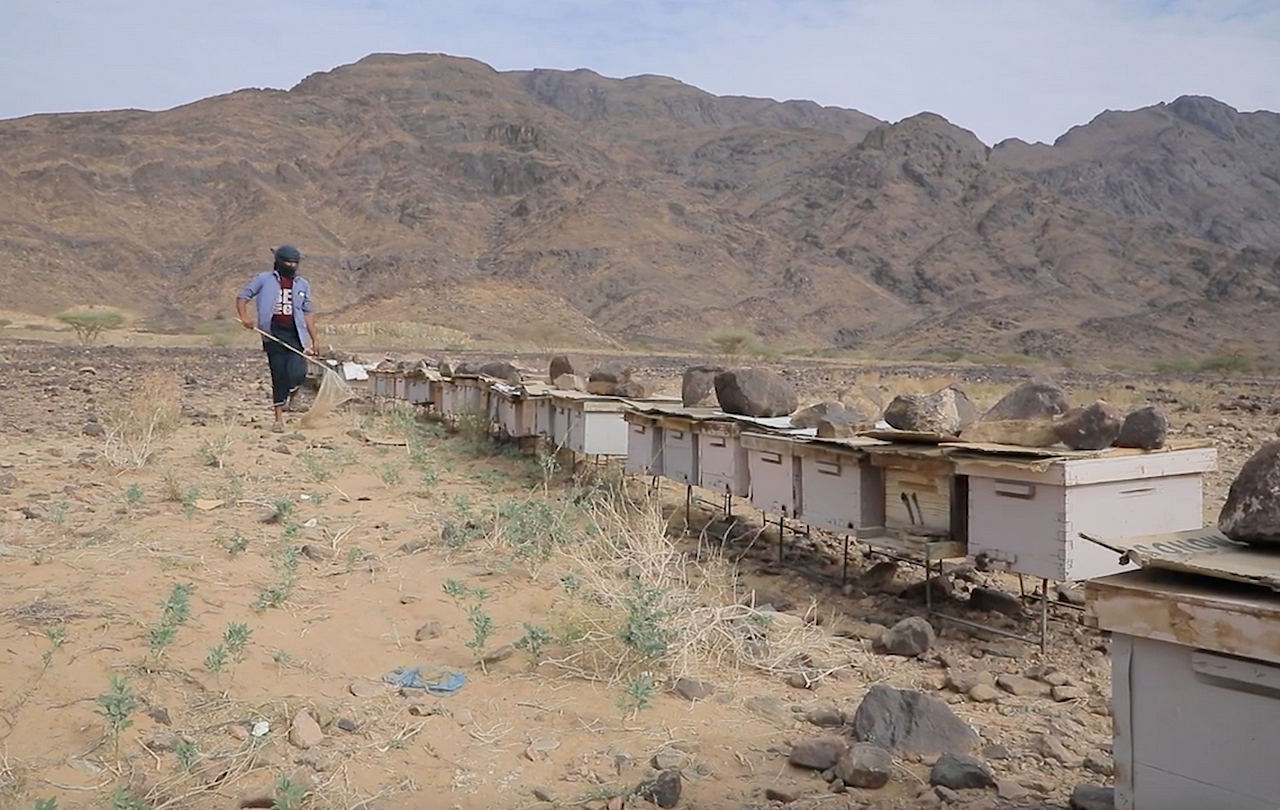
“Some of them died, some had their limbs amputated, and many others were injured, because mines were planted randomly,” he explained, adding that many were displaced.
Restrictions to beekeepers’ access, due to the perceived or confirmed threat of landmines, checkpoints or shifting frontlines, mean that some abundant pastures — such as areas where Sidr, Al-Salam and Al-Thobaih plants grow — are not used, which in turns leads to a decrease in honey production.
In some occasions, the SCSS said, this could lead to the perishing of whole bee colonies. In other area, this could also mean overcrowding, also resulting in harm to bee colonies.
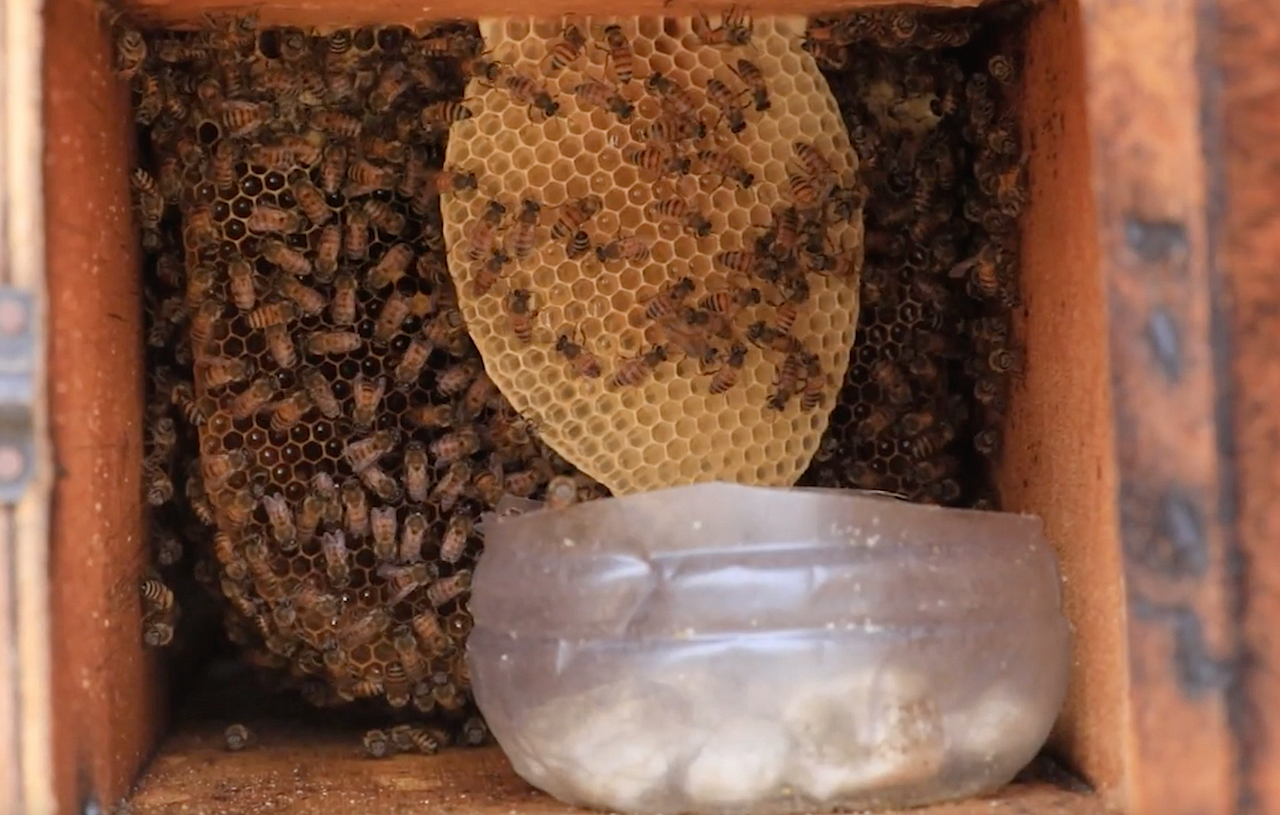
Clearing bee pasture areas of landmines
After all remnants of war were removed and the area made safe, Al-Musabi said, beekeepers were able to enter it again.
“Thanks to God and then the efforts of Project Masam, this area was cleared, mines were removed, and it became safe for work again.”
The leader of Project Masam’s Team 11, who carried out the humanitarian landmine clearance operation in Mabalqa district, highlighted the gravity of the situation, explaining, “this area has economic and social importance for civilians, as they benefit from it for grazing, agriculture, and fetching water.”
Once cleared, local apiarists were finally able to tend to their hives again, the team leader confirmed.
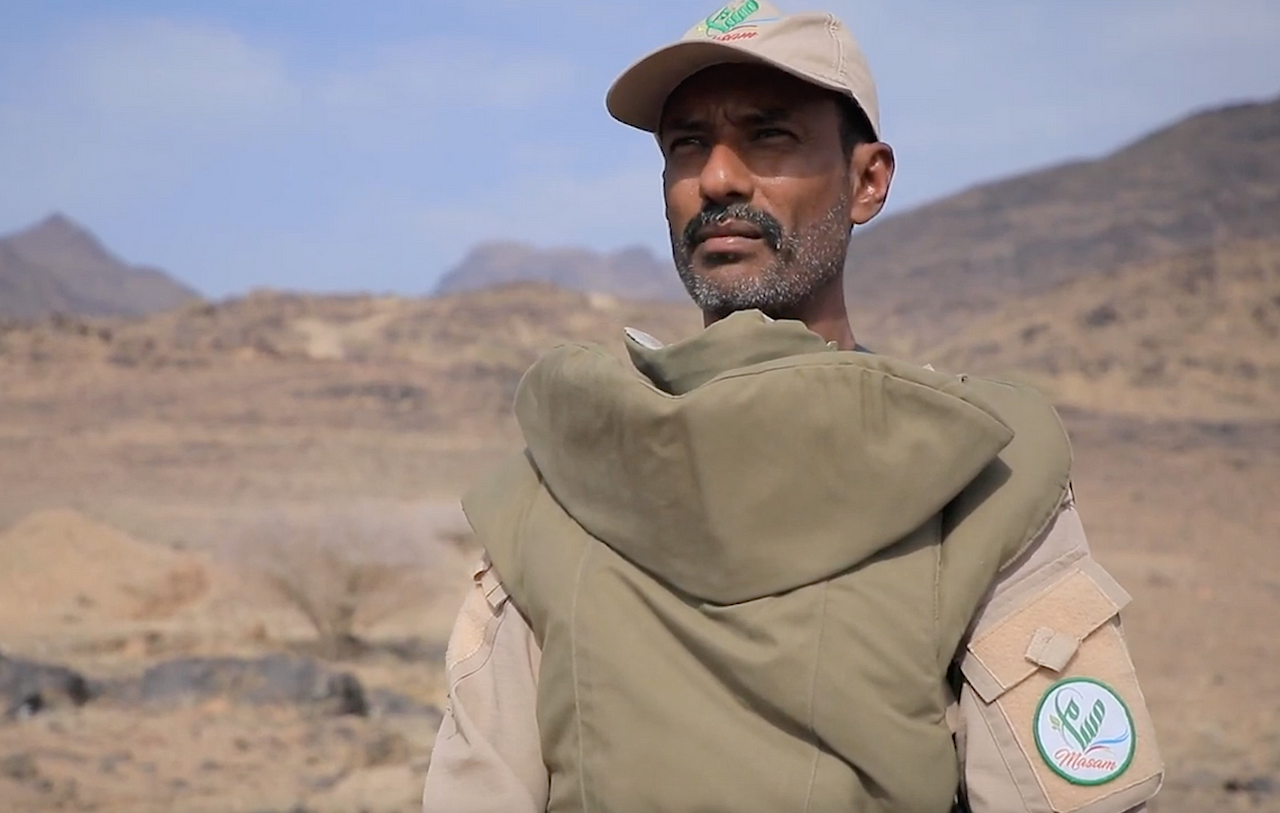
“Beekeeper sites were cleared and the beekeepers were able to return to their work safely after they had been displaced,” the mine action expert added.
Shabwah Governorate is the second largest governorate in terms of honey production after Hadramawt. In March 2023, Shabwah counted 356.850 beehives and yielded 1,067,800kg of honey, according to SCSS.

